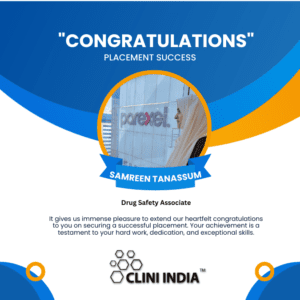
ICSR: Individual Case Safety Report
In the field of pharmacovigilance, the Individual Case Safety Report (ICSR) is a cornerstone document that plays a vital role in monitoring drug safety. It serves as a structured report that captures and documents adverse events associated with the use of a pharmaceutical product. ICSRs are critical for identifying potential safety signals and ensuring the continued safety and efficacy of drugs in the market.
What is an ICSR?
An Individual Case Safety Report (ICSR) is a detailed record of a suspected adverse drug reaction (ADR) or adverse drug event (ADE) reported by healthcare professionals, patients, or pharmaceutical companies. It includes comprehensive information about:
- The affected individual.
- The suspected drug or therapy.
- The adverse event or reaction.
- The outcome of the event.
ICSRs are submitted to regulatory authorities and play a key role in pharmacovigilance activities, such as detecting new risks and reassessing the benefit-risk balance of medications.
Key Components of an ICSR
An ICSR typically contains the following information:
- Patient Information:
- Age, gender, and relevant medical history.
- Any underlying conditions or co-morbidities.
- Suspected Drug Information:
- Name of the drug (generic or brand name).
- Dosage, route of administration, and treatment duration.
- Adverse Event Details:
- Description of the reaction or event.
- Date of onset and severity of the reaction.
- Outcome (e.g., recovery, hospitalization, or death).
- Reporter Information:
- Details of the individual reporting the event (e.g., healthcare professional, patient).
- Contact information for follow-up, if necessary.
- Additional Context:
- Information about other medications taken by the patient (concomitant drugs).
- Lab test results and diagnostic findings, if applicable.
Sources of ICSRs
ICSRs can be collected from various sources, including:
- Spontaneous Reporting: Reports from healthcare professionals, patients, or caregivers.
- Clinical Trials: Adverse events observed during clinical trials are documented as ICSRs.
- Literature Reports: Case studies or adverse event reports published in scientific journals.
- Post-Marketing Surveillance: Reports generated after a drug has been marketed.
Importance of ICSRs in Pharmacovigilance
ICSRs are the foundation of drug safety monitoring and contribute to:
- Signal Detection:
- Identifying trends or patterns that indicate potential safety concerns.
- Highlighting rare or serious adverse reactions that may not have been detected during clinical trials.
- Regulatory Decision-Making:
- Informing regulatory authorities about the safety profile of a drug.
- Supporting decisions such as label updates, risk management plans, or product withdrawals.
- Public Health Protection:
- Ensuring timely communication of safety concerns to healthcare providers and the public.
- Minimizing risks associated with drug use.
Challenges in Managing ICSRs
Despite their importance, managing ICSRs comes with challenges:
- Incomplete Data: Many reports lack crucial information, making analysis difficult.
- Duplicate Reports: Multiple reports of the same event can complicate data analysis.
- Volume of Reports: Large numbers of ICSRs require robust systems for effective management and analysis.
Conclusion
The Individual Case Safety Report (ICSR) is an indispensable tool in pharmacovigilance, ensuring that adverse events are documented and acted upon effectively. By capturing detailed information about drug safety issues, ICSRs contribute to protecting public health and maintaining trust in pharmaceutical products. Proper reporting and management of ICSRs are vital for identifying and mitigating risks, ensuring safer healthcare for all.


























































